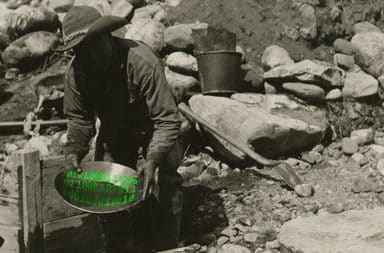It hath been but a fortnight since untimely death stealed the walls of fair Verona, and the gloom’d streets hath since rung with hardly a hey, nary a nonny-nonny. Sorely bereft are we that remain to have such beauteous youth as love-junked Romeo and his barely ripened Juliet, and other pimplish kinsfolk beside, snatched by odious Fate unto eternal neverday.
But lo, Friar Lawrence, by whose fault this tale of woe unravel’d, did with haste pivot, and launcheth he before the moon hath even waned, a line of herbal teas, crafted by his artisan’s hand, capitalizing on his blood-stained infamy to pitch at marketing so. No man of God is he, anon! Nay, a mountebank! A jack-a-snape!
Yet, by my troth, his herbal teas be as delightful as the juice from Galatea’s very dugs!
’Tis not with fully ease’d mind that I imbibe of that most soothing of the Friar’s herbaceous blends, be it “Rosaline’s Unrequited Rosehip” or “Zounds! This Lemon Zingeth!” For were it not Friar Lawrence who joined in secret matrimony, without the ken of parent on either side, that pair of death-wept whelps, so barely post-diapered as to not yet be certain of a beard, whether a-facing the sun or becloaked in their britches? Was it not his scheme with epistles poorly posted and poisons imprudently applied that tempted Fate to interfere with foul death by the shit-ton?
The thought of what Friar Lawrence hath wrought doth make me bristle! And yet when I am so vexed, what better I to turn to than the Friar’s own “Star-Crossed Clovers” with its patented anti-bristling properties. ’Tis sore ironic.
Recall ye that when the woeful tale was told of Juliet and Romeo, our goodly Prince did not punish our foolish Friar, though swiftly cancel’d in the public sphere was he. Friar by name but fie on his friarly ways! I shalt no more confess to him, though I confess his “Mourning Mix” doth soothe me to my very bodkins!
Thus I must demand of thee: are we to judge the artisanal tea as well as the man? Might we enjoy the one and condemn the other? A man of ill judgement, a right nincompoop, yea, but verily Friar Lawrence knoweth his stuff. Of baleful weeds and precious-juiced flowers, his knowledge be of highest repute. His botanist’s sense doth range even unto the savory grasses that one might flick off one’s platter as garnish, but for the Friar, ’tis the gut-pleasing inspiration that he hast nam’d “Parsley Is Such Sweet Sorrow.”
But, still, we shalt not hold him for a holy man, though he weareth even now the sackcloth of a man of God and sporteth monkish tresses most regrettable, the very likeness of which adorns the frontispiece of his teas, branded thusly as “Friar Lawrence’s It-Be-Not-My-Fault-I-Do-Swear-It Herbal Elixirs.” As a try, ‘tis a nice one.
On t’other hand, did not the Friar strive, with humility’s tootsies tender, to amend for his crimes with an offering to the grieving House of Montague and the same to the House of Capulet? Of surprise to none, the death-tinged brother was barred at the gates. Undeter’d, the man of cloth turned man of cheesecloth did scamper with a nimble aspect, surmounting yon balustrade and, under winking stars, didst deposit as a gift a single sachet of “I Canst Believe ’Tis Not Buttercup” upon their rooftops—a bag on both their houses.
Romeo is dead, and Juliet too. Mercutio murther’d. Tybalt: toast. We’ll not always have Paris. Oh, hot-blooded youth! Wouldst that thou had drunk of the Friar’s own, “Tame Thy Tension!”
Alas, what be done be done. Friar Lawrence must live with his sin and be shun’d evermore. But still I will slip me into the marketplace and, whispering with an exchange of silver, purchase in secret his sweet and delighting teas.
Though mark me, I’ll dare not sip his “Sleepytime.”


